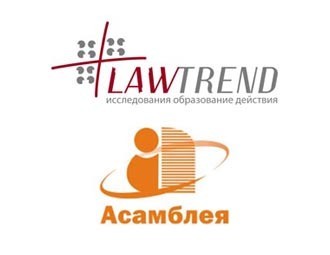Alternative report on freedom of association in Belarus to the Human Rights Council issued in Minsk

Assembly of NGOs and Legal Transformation Centre Lawtrend point out at the negative policy the state pursues towards the civil society.
An alternative report to the UN Human Rights Council “Freedom of associations and legal conditions for civil society organizations (CSOs) in Belarus” analyzes situation of the past 5 years.
What does it look like and how is it built into the international mechanisms?
“The report is drawn in the frames of the United Nations Universal Periodic Review (UPR). The procedure is organized by the UN Human Rights Council in Geneva, - informed Yury Chavusau, a lawyer Of the Assembly Of Pro-Democratic NGOs Of Belarus. – In the frames of this procedure there is no difference whether the state signed some international document on human rights or not; UPR’s view is a 360-degree view on human rights. It covers human rights in all countries of the world, and once in 5 years each country submits its report on the situation with human rights, fulfillment of civic, political, social and political, cultural rights, discrimination, and so on. I.e. it is an all-inclusive mechanism for all countries”.
The authors of the report emphasize that the document specializes in one aspect of human rights, which is freedom of association and legal conditions for civil society organizations in Belarus.
Elena Tonkacheva, the director of the Legal Transformation Centre Lawtrend says that the Belarusan government hasn’t reconsidered its practice of ignoring conclusions made by the UN Human Rights Committee; i.e. no positive changes in the sphere of freedom of association and legal conditions for civil society organizations took place over the last few years.
The number of public organizations in Belarus remains very low. “If we compare it with our neighboring countries, we’ll see that Belarus is among those countries where this indicator is much lower than that in Latvia, Lithuania, Estonia, and Ukraine”, - noted Tonkacheva.
UPR procedure will take place in May 2015 during the 22nd Session of the UN Human Rights Council.
Legal Transformation Center and Assembly of Pro-Democratic NGOs of Belarus’ recommendations on the UN Human Rights Council Universal Periodic Review of Belarus (second cycle):
Belarus should align its legislation and practices in the field of freedom of associations and legal regulation of civil society organizations with international standards, including the following:
7.1. Abolish criminal responsibility for organization and participation in the activity of non-registered organizations (exclude Article 193.1 from the Criminal Code), as well as lift the ban on activity of non-registered organizations.
7.2. Simplify the procedure for registration of political parties, other public associations and foundations, cut down the list of grounds for decisions on refusals in their registration.
7.3. Legislate the possibility to register non-commercial organizations, including public associations and their branches, in premises in the buildings of their founders’ (members’) residence.
7.4. Reduce the number of founders, which is required for establishment and activity of public associations, provide equal opportunities to conduct activities on the whole territory of the country for all public associations (abolish division of public associations as to local, republican and international ones).
7.5. Abolish the requirement for preliminary registration of foreign donations in state bodies, as well as abolish restrictive lists of purposes, which foreign donations and donations from Belarusian businesses can be received for.
7.6. Broaden opportunities for civil society organizations to attract donations, including exclusion of anonymous donations from the notion of “foreign gratuitous aid” and provide of tax benefits for donations from Belarusian businesses.
7.7. Develop non-discriminatory and open system of civil society financing from the state budget on the basis of competitive bidding, which will also stipulate publication of the data on the volumes of state support, as well as public reports from recipient organizations on its usage.
7.8. Legislate mechanisms of consultations and partnership between state bodies and civil society organizations, as well as extend the practice of discussing draft laws and other legal acts with the affected civil society organizations.
7.9. Stop the practice of persecutions in respect of civil society organizations participants, including members of human rights organizations.
7.10. Implement the UN Human Rights Committee recommendations, including those issued under individual appeals from victims of violations of the right to freedom of associations; submit periodic reports to the UN bodies in accordance with all the undertaken international obligations.
You can read the whole version of the report here.
-
03.01
-
07.10
-
22.09
-
17.08
-
12.08
-
30.09



























